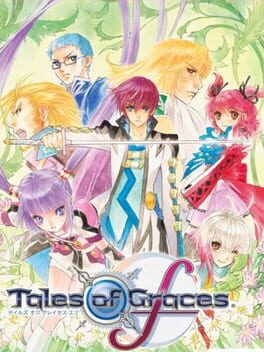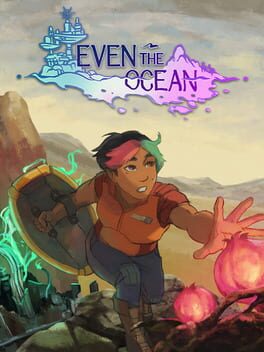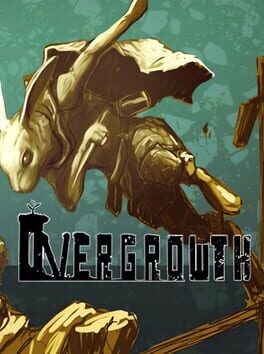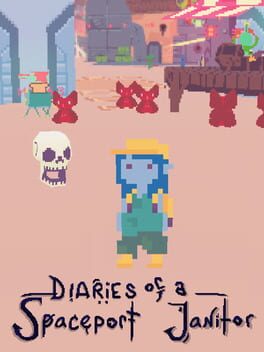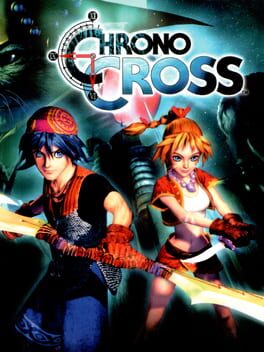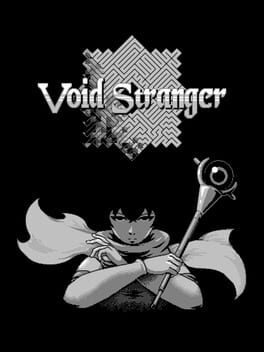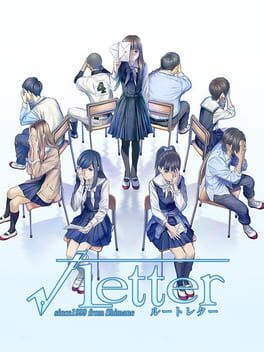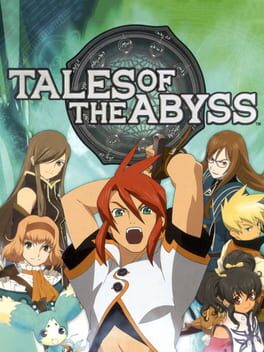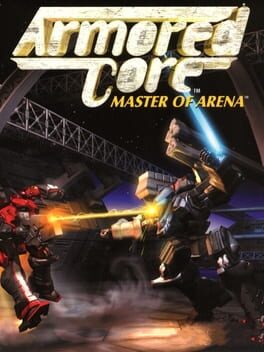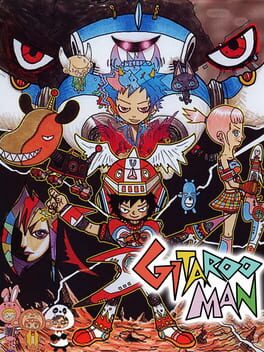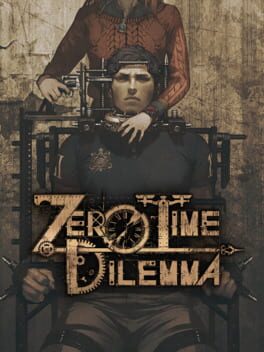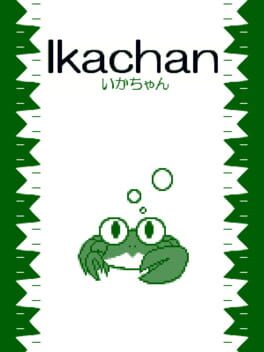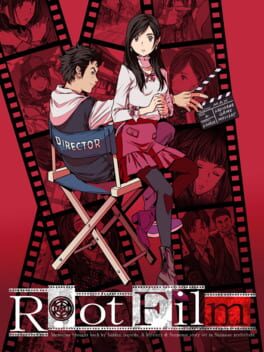wingXblade
2010
2016
A flagship to all those games that want to talk about work outside the sim genre, Even the Ocean is a methodical puzzle-platformer essay on how the mundane and crisis moments of the individual and society shape one another. Fantasy electrician labor is made into an independent state Uber model (why is every indie game about labor like this), your coworker dies gruesomely the first day on the job, and you persist against all odds. Aliph has a loose metropolitan society and no proper coworkers to inform how they should react to being left for dead and silently accepts the hero's accolades along with being wrung out for more deadly work outside the job description. I really dislike the moments trying to bespoke about its fantasy elements because obviously I know that Shinra is evil and that I should not destroy the giant stone wardens of the planet, but our hero-electrician's plain acceptance of the clearly evil work is a really great vehicle for refrained the disaster tourism of video game levels. The game is functionally paced by having to clock in and out of work before levels. Along with a little breakfast stand that dots the way to work, a very small touch is all Even the Ocean needs to pull out mixed drudgery of life with wage labor. The NPCs speak as if they've been gutted of something precious at a spiritual and social level while the fantastical elements of the world are trying to yank a hero does not exist within Aliph. I'm pretty down on the narrative and thematic bow tying that gets dropped suddenly at the end, but I generally enjoy the way the game culminates and the sensations delivers on the way there.
2017
CWs for Overgrowth: graphic animal death, blood, falling from great heights, depictions of pre-feudal slavery
I am aware of this game's development cycle and would like to speak charitably about it, but Overgrowth is a game where I continuously struggle to find such a through-line. There is an interesting FFXV-like action game input system that is robbed of any chance to shine through a lack encounters or AI which elaborate on it in any capacity. Very few platforming pieces complement the movement tools you have and when they do it, they're just achieving what a platformer should do in it's first few levels anyway (teaching you your jump max distance, height, stopping short, etc). The mode of aesthetics in art and writing here is both needlessly chaste and purposelessly cruel, as you get slammed by paper thin characters and unbelievable fantasy slavery. More than anything, this game feels like a cautionary tale on why programming is secondary to overall game design as Overgrowth fails to command even the gravity of a tech demo.
I am aware of this game's development cycle and would like to speak charitably about it, but Overgrowth is a game where I continuously struggle to find such a through-line. There is an interesting FFXV-like action game input system that is robbed of any chance to shine through a lack encounters or AI which elaborate on it in any capacity. Very few platforming pieces complement the movement tools you have and when they do it, they're just achieving what a platformer should do in it's first few levels anyway (teaching you your jump max distance, height, stopping short, etc). The mode of aesthetics in art and writing here is both needlessly chaste and purposelessly cruel, as you get slammed by paper thin characters and unbelievable fantasy slavery. More than anything, this game feels like a cautionary tale on why programming is secondary to overall game design as Overgrowth fails to command even the gravity of a tech demo.
CWs for Memories of a Spaceport Janitor: bodily fluids, harassment, transphobia.
A deeply unfocused, dispassionate, and not very carefully tuned container for the weird liberal middle-class imagination of a distinctly working class job. I'm theoretically into the core loop and really a big fan of how consistently disorienting the city is, but it's in too loose of a frame and ends up stumbling where decades of sims have already produced so many models for designing day-to-day minutia. The scaling of numbers and the general cost of life is baffling given the dice roll to figure out your daily piece-wage and doubly so when you realize that there's just no rent due for some reason. I have a bit of sympathy for this game because I really did otherwise enjoy bopping around the city, but it holds a really nefarious and delirium inducing bootstrap moralizing directed at an individual in an abstraction of our own society that's way too fucking stinky.
A deeply unfocused, dispassionate, and not very carefully tuned container for the weird liberal middle-class imagination of a distinctly working class job. I'm theoretically into the core loop and really a big fan of how consistently disorienting the city is, but it's in too loose of a frame and ends up stumbling where decades of sims have already produced so many models for designing day-to-day minutia. The scaling of numbers and the general cost of life is baffling given the dice roll to figure out your daily piece-wage and doubly so when you realize that there's just no rent due for some reason. I have a bit of sympathy for this game because I really did otherwise enjoy bopping around the city, but it holds a really nefarious and delirium inducing bootstrap moralizing directed at an individual in an abstraction of our own society that's way too fucking stinky.
1999
CWs for Chrono Cross: child abuse, sexual harassment, burning alive, mind control.
Maybe the boldest and most tender RPG produced at Square pre- and post-merger, Chrono Cross is a pastoral re-phrasing of Chrono Trigger's thesis on the will of the individual. Where Trigger gives you buckets of endings to fulfil the endless possibility of time travel and the player's will as represented by our avatar Crono, Chrono Cross says you must live in society. Every day may feel like you're working with systems beyond your individual control which you don't yet understand, but the people you surround yourself with, how you order the tasks set before you, and who you share collective memory with create a bold and irreplaceable picture of life. Simply designing a vibrant world and filling it with life in animation and visionary approaches to pre-rendered backgrounds grants Chrono Cross a precious vitality I've always wished could poke through in Trigger.
The combat system is a little dinky and it's unbelievable that this game still runs like dog shit on its modern ports, but most video games to this day wish they could land their fantasy allegory for modern society like this game does so effortlessly. There's not really that much nuance because it just doesn't need it! Living in society has boundaries and structures that can hurt and help us and it's in our power to band together and do something about the ones that harm, send tweet.
Maybe the boldest and most tender RPG produced at Square pre- and post-merger, Chrono Cross is a pastoral re-phrasing of Chrono Trigger's thesis on the will of the individual. Where Trigger gives you buckets of endings to fulfil the endless possibility of time travel and the player's will as represented by our avatar Crono, Chrono Cross says you must live in society. Every day may feel like you're working with systems beyond your individual control which you don't yet understand, but the people you surround yourself with, how you order the tasks set before you, and who you share collective memory with create a bold and irreplaceable picture of life. Simply designing a vibrant world and filling it with life in animation and visionary approaches to pre-rendered backgrounds grants Chrono Cross a precious vitality I've always wished could poke through in Trigger.
The combat system is a little dinky and it's unbelievable that this game still runs like dog shit on its modern ports, but most video games to this day wish they could land their fantasy allegory for modern society like this game does so effortlessly. There's not really that much nuance because it just doesn't need it! Living in society has boundaries and structures that can hurt and help us and it's in our power to band together and do something about the ones that harm, send tweet.
2022
CWs for Signalis: extreme flashing lights, body horror, trypophobia triggers, bodily fluids, dismemberment, mind control. abuse, practices of enslavement.
Signalis is a delectable and gorgeous survival horror who's affect is painfully undermined by a weak grasp on montage, a death grip on an underdeveloped obscurity, and a deep uncertainty on the player's role as an actor haunting the whole affair. I love how evocative this game is and how well it synthesizes its obvious touchstones at a formal level, but it drags its feet far too long before any stakes or narrative legibility are offered.
Signalis is undeniably looking towards Silent Hill and Resident Evil; the former's theater of the mind playing out in abstraction and architecture plus the latter's rat-in-a-maze approach to resource attrition. This a la carte approach frequently produces grinding halts at puzzles that would be better served as set pieces that functionally appeared as Professor Layton puzzles instead of another inventory juggling moment. There are strides of playtime where the mixed approach sings and the carousel routing highlights new knowledge of the same environmental pieces, but they're far too few in the first act or far too late in the last.
In many ways, this game chases some really intoxicating leads on how to break convention in a genre very in clutches of its predecessors. Signalis looks to the drama of workers revolt, of military domination, of gay women kept apart by society. The sudden tip in power relationships in Resident Evil when you know you can safely blow a fuck ton of ammo theoretically has a lot of room to fill in these topics. Unfortunately, it needs a bit of formal convention as most people will play for a very long time without understanding the shape of galaxy, the relation of the nations, who any one is, and why Elster is taking action at all. I'm not asking for a lot and I'm more than unhappy to be unknowing, but you need to give a player some grounding to resolve the montage of fictional symbolic language if you're not going to develop your systemic language past homage. Even Silent Hill 2 gives us a very short yet explicit monologue: we know where we're going and what that place means in the scheme of Harry's motivations.
Video games are not films. They are not television, they are not books, and they're certainly not a painting. Most do not let you easily return or rewind to chew on what's been delivered. The flags cannot be taken back and the internal timer marches on in the code. I mostly had a very fun time with this game and it is a very interesting object, but Signalis desperately needs to let a viewer in beyond the spectacle factor before the final hour to claim a thematic weight heavier than paper mache.
Signalis is a delectable and gorgeous survival horror who's affect is painfully undermined by a weak grasp on montage, a death grip on an underdeveloped obscurity, and a deep uncertainty on the player's role as an actor haunting the whole affair. I love how evocative this game is and how well it synthesizes its obvious touchstones at a formal level, but it drags its feet far too long before any stakes or narrative legibility are offered.
Signalis is undeniably looking towards Silent Hill and Resident Evil; the former's theater of the mind playing out in abstraction and architecture plus the latter's rat-in-a-maze approach to resource attrition. This a la carte approach frequently produces grinding halts at puzzles that would be better served as set pieces that functionally appeared as Professor Layton puzzles instead of another inventory juggling moment. There are strides of playtime where the mixed approach sings and the carousel routing highlights new knowledge of the same environmental pieces, but they're far too few in the first act or far too late in the last.
In many ways, this game chases some really intoxicating leads on how to break convention in a genre very in clutches of its predecessors. Signalis looks to the drama of workers revolt, of military domination, of gay women kept apart by society. The sudden tip in power relationships in Resident Evil when you know you can safely blow a fuck ton of ammo theoretically has a lot of room to fill in these topics. Unfortunately, it needs a bit of formal convention as most people will play for a very long time without understanding the shape of galaxy, the relation of the nations, who any one is, and why Elster is taking action at all. I'm not asking for a lot and I'm more than unhappy to be unknowing, but you need to give a player some grounding to resolve the montage of fictional symbolic language if you're not going to develop your systemic language past homage. Even Silent Hill 2 gives us a very short yet explicit monologue: we know where we're going and what that place means in the scheme of Harry's motivations.
Video games are not films. They are not television, they are not books, and they're certainly not a painting. Most do not let you easily return or rewind to chew on what's been delivered. The flags cannot be taken back and the internal timer marches on in the code. I mostly had a very fun time with this game and it is a very interesting object, but Signalis desperately needs to let a viewer in beyond the spectacle factor before the final hour to claim a thematic weight heavier than paper mache.
2023
CN for Void Stranger: Sexual harassment
A lush and witty sokobon-hybrid that stumbles over making sense of its mutli-genre style brakes. The way the tile swap game slowly shifts in and out of a Zelda-like dunegeon crawler to a La Mulana action-riddler is really breathtaking and exciting, but I ended up feeling way less about this as it came to a close. Where Zeroranger effortlessly lines up its sparse narrative with the stressful emotional player-arc of trying to 1cc a shmup, Void Stranger boasts a generic mélange of "don't give up" vibes that fails to celebrate its own strengths or its genre heritage. The constant micro genre-shifts really are delightful, but they walk too far away from the core frustration-to-lightbulb-moment cycle of this kind of puzzle game. I like the grunt work and guess-and-check solutions this game makes a player deal with, but after a certain point I really do not need to descend the tower twice per reattempt of the final sequence. I thought the problem with this game would be having too much text, but besides the dull swing at a System Erasure cinematic universe, the story is perfectly tender and understated despite all the women being naked for the entire last third. What I'd really like to see from System Erasure in the future is a bit more follow-through on the clear central design idea and an understanding of where to put the period on the game. Void Stranger is a blast and really so so so exciting to pull apart but it's far too gray in-between the text behemoth of La Mulana and their own debut arcade joyride.
A lush and witty sokobon-hybrid that stumbles over making sense of its mutli-genre style brakes. The way the tile swap game slowly shifts in and out of a Zelda-like dunegeon crawler to a La Mulana action-riddler is really breathtaking and exciting, but I ended up feeling way less about this as it came to a close. Where Zeroranger effortlessly lines up its sparse narrative with the stressful emotional player-arc of trying to 1cc a shmup, Void Stranger boasts a generic mélange of "don't give up" vibes that fails to celebrate its own strengths or its genre heritage. The constant micro genre-shifts really are delightful, but they walk too far away from the core frustration-to-lightbulb-moment cycle of this kind of puzzle game. I like the grunt work and guess-and-check solutions this game makes a player deal with, but after a certain point I really do not need to descend the tower twice per reattempt of the final sequence. I thought the problem with this game would be having too much text, but besides the dull swing at a System Erasure cinematic universe, the story is perfectly tender and understated despite all the women being naked for the entire last third. What I'd really like to see from System Erasure in the future is a bit more follow-through on the clear central design idea and an understanding of where to put the period on the game. Void Stranger is a blast and really so so so exciting to pull apart but it's far too gray in-between the text behemoth of La Mulana and their own debut arcade joyride.
2016
An extremely pastoral and methodical take on the adventure-mystery game where the mystery is the melodrama of AnoHana with a bunch of 30 year olds. The sheer amount of areas to scroll through (thanks Matsue tourism board) and a lot of UI oddities can produce some frustration, but the meat of this game is an earnest mulling over the slowness and the arbitrary nature of meeting people, growing up, and growing apart. The routing of the game is mellow while the logic steps of being super confrontational with people you only know via 15 year old written descriptions is right parts absurd and exciting. Max mode is goofy but so is the rest of it. I think the game really didn't need multiple endings and could have been a much cleaner thing if the normal ending was the only ending with some expansion, but you gotta get the VN trash ppl in I guess. Don't bother playing the bad routes, they're not as absurd as some other places on the internet would make you believe.
2005
CWs for Zero Escape: Nine Hours, Nine Persons, Nine Doors: blood, graphic injury, sexual harassment, kidnapping, sedation, child death.
Uchikoshi's directorial debut is maybe his best version of his one trick. A touchdown of a DS exclusive, 999 plays on reader assumptions based in game logic, hardware, and UI to neatly wrap them into earnestly pulpy character beats. The feelings of piecing together a mystery for someone doing 0 detective guesswork have never been mechanized better. There are no end goals or bigger statements, but the metanarrative moves are evocative enough that the whole game is supported.
I've been tricked into podcasting about this franchise! Listen to our episode closing out 999.
Uchikoshi's directorial debut is maybe his best version of his one trick. A touchdown of a DS exclusive, 999 plays on reader assumptions based in game logic, hardware, and UI to neatly wrap them into earnestly pulpy character beats. The feelings of piecing together a mystery for someone doing 0 detective guesswork have never been mechanized better. There are no end goals or bigger statements, but the metanarrative moves are evocative enough that the whole game is supported.
I've been tricked into podcasting about this franchise! Listen to our episode closing out 999.
2001
2000
2020
CWs for Root Film: Sui*, spousal abuse, gaslighting, falling from great heights, traffic accidents, emotional manipulation, drowning, blood, graphic wounds, body horror, torture, asphyxiation.
Root Film, despite seeming like a wide turn from it's extremely pastoral predecessor, is mostly a very chill workplace comedy adventure novel game about small actors and directors working in made for tv mystery films who accidentally stumble into various mysteries and then actual murder cases. Both perspective characters Yagumo and Riho are a delight, having really snappy rapport with the supporting cast without ever sneering into the camera for a quip or belaboring the genre tropes the game is often quietly building upon. The Root games continuing to be about adults who have jobs in a specific town or city that then end up in situations is a really grounding approach to character and scenario writing that is really absent in novel games and games as a whole and ultimately makes these games really phenomenal despite also being extremely average.
The mystery solving and adventure game stuff is cleaned up a lot from Root Letter. They've dialed back the fucked up volume of locations to keep in order and have made the chapter culminations really simple affair, sitting somewhere between Ace Attorney Investigation's Logic Chess and the evidence bullets of Danganronpa trials. The steps to win these cross examinations are much more slight, but really it's better that you only have to prove like three or four argument points because the game is otherwise a breezy affair. I dislike how the tone of the overarching mystery develops against my taste and what I liked the most about the first game, but the way it builds and uses the all of the game's formal and promotional material is exciting when it does finally let you give answers. This is a really smart follow up to Root Letter that answers a lot of shortcomings of that game while still keeping the same low key identity that makes that game stand out.
Root Film, despite seeming like a wide turn from it's extremely pastoral predecessor, is mostly a very chill workplace comedy adventure novel game about small actors and directors working in made for tv mystery films who accidentally stumble into various mysteries and then actual murder cases. Both perspective characters Yagumo and Riho are a delight, having really snappy rapport with the supporting cast without ever sneering into the camera for a quip or belaboring the genre tropes the game is often quietly building upon. The Root games continuing to be about adults who have jobs in a specific town or city that then end up in situations is a really grounding approach to character and scenario writing that is really absent in novel games and games as a whole and ultimately makes these games really phenomenal despite also being extremely average.
The mystery solving and adventure game stuff is cleaned up a lot from Root Letter. They've dialed back the fucked up volume of locations to keep in order and have made the chapter culminations really simple affair, sitting somewhere between Ace Attorney Investigation's Logic Chess and the evidence bullets of Danganronpa trials. The steps to win these cross examinations are much more slight, but really it's better that you only have to prove like three or four argument points because the game is otherwise a breezy affair. I dislike how the tone of the overarching mystery develops against my taste and what I liked the most about the first game, but the way it builds and uses the all of the game's formal and promotional material is exciting when it does finally let you give answers. This is a really smart follow up to Root Letter that answers a lot of shortcomings of that game while still keeping the same low key identity that makes that game stand out.
